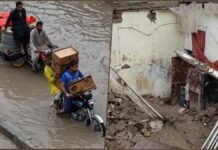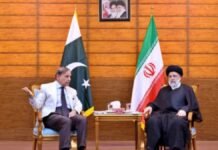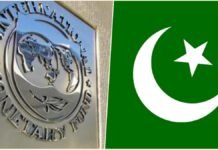
Key Points:
- Deportation Deadline Ends: Pakistan’s federal government begins forced deportation of Afghan refugees after the March 31 deadline, detaining over 200 individuals in Islamabad and Karachi.
- Khyber Pakhtunkhwa Stands Firm: The province criticizes the federal policy as “faulty” and refuses to forcibly expel refugees, offering voluntary repatriation support instead.
- Global Outcry: UN and international organizations condemn Pakistan’s deportation plan, urging humane treatment and adherence to international refugee laws.
Islamabad: Pakistan’s federal government has initiated the forced deportation of Afghan refugees following the expiration of a March 31 deadline. The controversial policy targets both undocumented Afghans and those holding Afghan Citizen Cards (ACC), with authorities detaining over 200 individuals in Islamabad, Rawalpindi, and Karachi. This move has drawn sharp criticism from human rights organizations, the United Nations, and even provincial leaders within Pakistan.
The directive, issued earlier this year, mandates the deportation of approximately 3 million Afghan nationals residing in Pakistan. Among them are 1.4 million registered refugees and 800,000 ACC holders. The federal government claims the policy is necessary to address security concerns amid rising terrorism incidents.
Khyber Pakhtunkhwa Rejects Forced Expulsions
Khyber Pakhtunkhwa (KP), home to the largest Afghan refugee population in Pakistan, has openly opposed the federal government’s deportation strategy. Chief Minister Ali Amin Gandapur criticized the policy as “faulty” and reaffirmed that no Afghan refugee would be forcibly expelled from the province.
“We have cultural and historical ties with Afghan refugees,” Gandapur stated during a press conference in Islamabad. “If any refugee wishes to return voluntarily, we will provide resources to facilitate their dignified repatriation. However, we will not force anyone.”
KP’s stance contrasts sharply with actions taken in other provinces like Sindh and Punjab, where raids have resulted in mass detentions. In Karachi alone, authorities detained over 150 Afghans on April 4 as part of the federal government’s crackdown.
International Condemnation
The United Nations High Commissioner for Refugees (UNHCR) and the International Organization for Migration (IOM) have strongly condemned Pakistan’s deportation plan. In a joint statement, they urged Islamabad to halt forced relocations and adhere to international principles of non-refoulement, which prohibit returning refugees to countries where they face persecution.
“Millions of Afghans are at risk of being pushed back into a dire humanitarian crisis,” said Philippa Candler, UNHCR’s country representative in Pakistan. “We call on Pakistan to ensure safe and voluntary returns while respecting international human rights standards.”
The Afghan Taliban government has also appealed to Pakistan to reconsider its decision. Mawlavi Abdul Kabir, Afghanistan’s Minister of Refugees and Repatriation, emphasized the importance of treating refugees with dignity and called for regional cooperation.
Humanitarian Concerns
Rights groups warn that deporting Afghan refugees could exacerbate an already dire humanitarian situation in Afghanistan. Since the Taliban’s takeover in August 2021, Afghanistan has faced severe economic collapse, widespread poverty, and restrictions on women’s rights. Many deportees risk persecution or violence upon their return.
Reports from Amnesty International reveal that some deported individuals held valid documentation but were still expelled arbitrarily. “This policy violates international norms and puts vulnerable populations at grave risk,” said Mohammad Khan Talebi, a migrant rights activist.
Ground Reality: Refugee Struggles
Afghan refugees in Pakistan have expressed fear and uncertainty amid ongoing crackdowns:
- In Karachi, refugees reported being detained without food or water for hours.
- Families with children have been uprooted from their homes with little notice.
- Many refugees who have lived in Pakistan for decades now face losing their livelihoods and access to education.
One refugee detained in Islamabad shared his ordeal: “We’ve been here for 20 years. My children were born here. Now we’re treated like criminals.”
Broader Implications
Pakistan’s deportation policy comes at a time of heightened geopolitical tensions:
- Security Concerns: The government cites rising cross-border terrorism as justification for its actions.
- Economic Strain: Hosting millions of refugees has placed significant pressure on Pakistan’s struggling economy.
- Diplomatic Fallout: The policy risks straining relations with Afghanistan while drawing criticism from Western nations advocating for refugee protection.
Analysts warn that forced deportations could backfire by fueling resentment among Afghan communities and undermining regional stability.
Pakistan’s mass deportation of Afghan refugees has ignited a national and international debate over human rights, security concerns, and regional diplomacy. While provinces like Khyber Pakhtunkhwa advocate for humane treatment and voluntary repatriation, the federal government remains steadfast in its crackdown. As global condemnation mounts, the fate of millions of Afghan refugees hangs in the balance amidst an unfolding humanitarian crisis.



















































